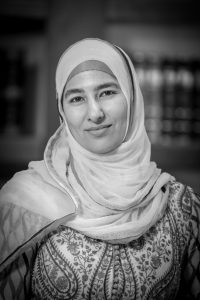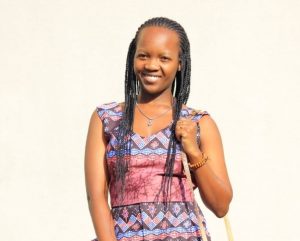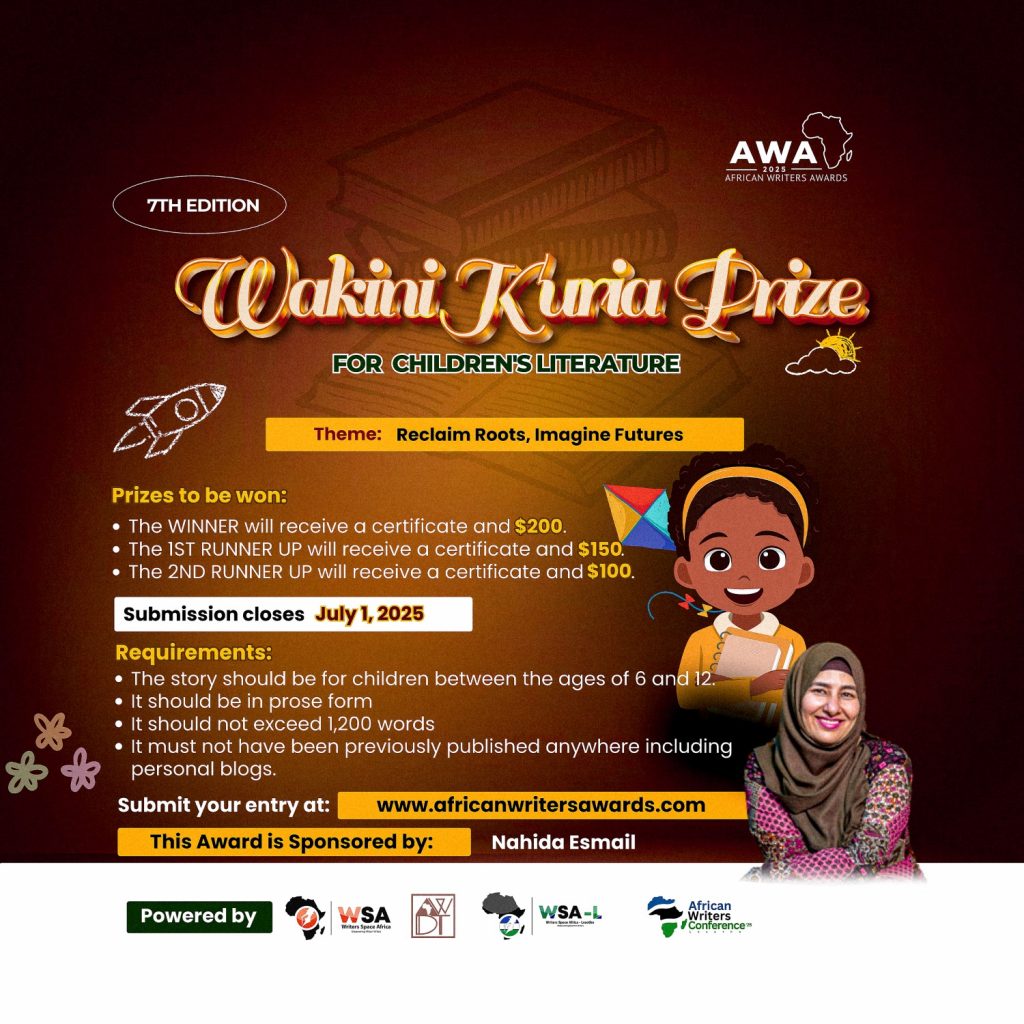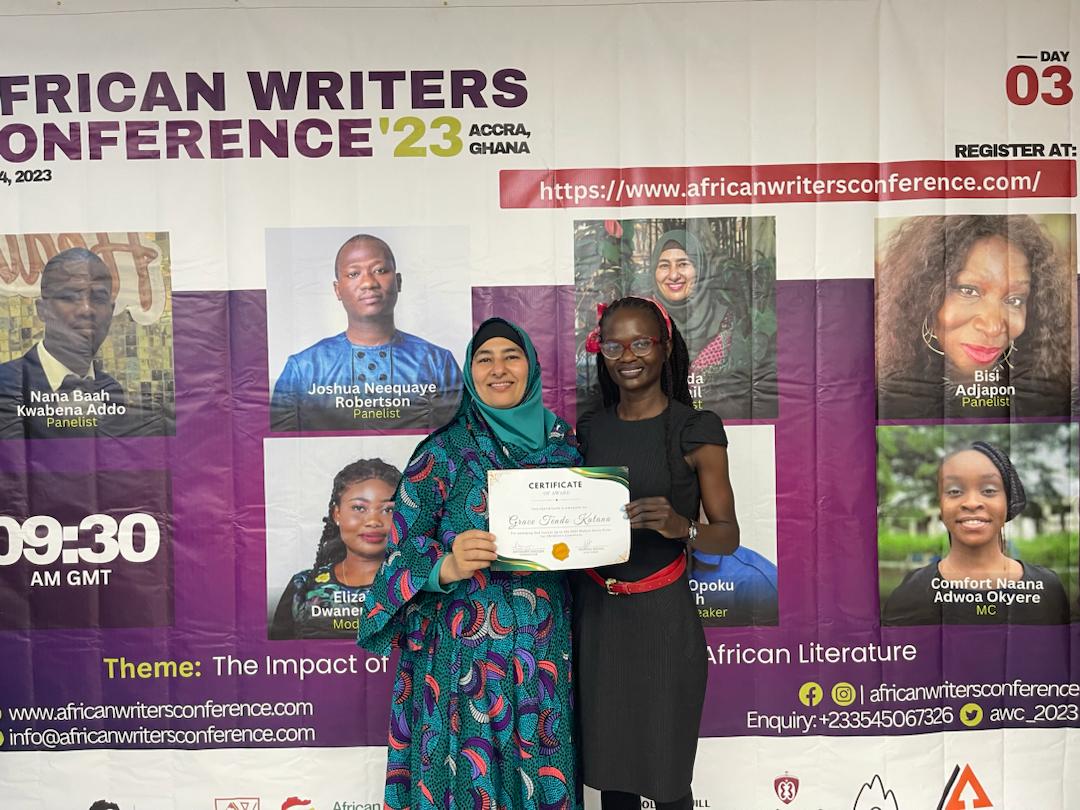The Wakini Kuria Prize for Children’s Literature was established in 2019 to honour the memory and legacy of Wakini Kuria. Wakini served on the Advisory Board of the African Writers Development Trust and was the Chief Editor of Writers Space Africa (WSA) magazine from 2017 until her passing in 2019. She was also the convener and coordinator of Writers Space Africa – Kenya Chapter.
The previous winners of this award include Makhago Peter (Uganda), Nathaniel Z Mpofu (Zimbabwe), Marjorie Moono Simuyuni (Zambia), Madeha Ezekial Malecela (Tanzania), Blessing Aliyu Tarfa (Nigeria), Halieo Motanyane (Lesotho), Stephanie Chizoba Odili (Nigeria), Makhago Peter (Uganda), Stephanie Chizoba Odili (Nigeria), Nathaniel Z Mpofu (Zimbabwe), Ogbu Eme (Nigeria), Joshua Robertson (Ghana), Blessing Amatemeso (Nigeria), Chantelle Chiwetalu (Nigeria), Lindsay Katchika-Jere (Malawi), Grace Tendo Katana (Uganda), Grace Thuo (Kenya), Cynthia Anjie Nkweti (Cameroon), and Laura Pettie (Tanzania).
For the 7th edition of the Wakini Kuria Prize, we are calling for submissions in the children’s literature genre for children between the ages of 6 and 12. This call is open ONLY to writers of African descent and will run from April 1 to July 1, 2025. The winner of this prize will receive a certificate and $200, the second-place winner will receive a certificate and $150, while the third place will receive a certificate and $100. The prize is sponsored by Nahida Esmail.
Please note:
The theme for this prize is Reclaim Roots, Imagine Futures.
Stories should not exceed 1,200 words. We do not accept poetry for this edition.
Entries must not have been previously published anywhere, including personal blogs.
We do not accept submissions generated by AI.
Previous winners are ineligible to submit.
Meet the judges

The chief judge of the Wakini Kuria Prize for Children’s Literature is Nahida Esmail. She is an award-winning author born and raised in Dar es Salam, Tanzania. Her five young adult novels, Living in the Shade, Lesslie the City Maasai, Detectives of Shangani, Living in the Shade: Aiming for the Summit and Karafu: A freed Slave have all received CODE’s Burt Award for African Literature. She has nearly 30 published books including children’s picture books and textbooks. Nahida’s writing journey began when she went in search of books for her daughter but was disappointed at the lack of books written by and for Tanzanians, and so she decided to write them.
Nahida graduated from Goldsmiths College, University of London, with a BSc in Psychology and she completed a Master’s in Child Development with Early Childhood Education at the Institute of Education, University of London. Nahida currently lives in Dar es Salaam, Tanzania and is a part-time writer and a full-time mother of two girls. She enjoys reading, cycling, mountain climbing, photography, and travelling. She has lived in London, UK; Cairo, Egypt; and Durban, South Africa. Nahida was the keynote speaker at the 2018 African Writers Conference in Abuja, Nigeria and a recipient of the African Writers Award of merit.

Namse Udosen is a renowned educational expert, and author of Amang Goes to the Village. He is well known for his unwavering advocacy for literacy and education reforms in Nigeria. Namse is an active participant in the African writing community, serving as a central figure at Writers Space Africa and the African Writers Conference and as an editor for WSA Magazine. He extends his impact as a mentor for teens at the Yasmin El Rufai Foundation in Kaduna, Nigeria. He is a panel member for the Wakini Kuria Prize for children’s literature in Africa. He is a respected panellist at events like KABAFEST, Open Arts, the Ibom Book and Arts Festival, and KAFART.
He is a Chevening Scholar studying MA in International Education and Development at the University of Sussex.

Halieo Motanyane is a talented Mosotho writer who excels in children’s literature and short stories. In addition to her writing pursuits, she is a professional filmmaker with a focus on scriptwriting and editing. Halieo has made significant contributions to the literary community through her published works, including two children’s books – Hessy and the Lost Tooth, which won the second runner-up award from the Wakini Kuria Prize for Children’s Literature in 2020, and Sekolong sa Mpho, which is also available in an English version. Her creative talents and literary achievements have garnered a significant following on social media, with her Facebook page being a hub for literary enthusiasts to connect with her and her work.

